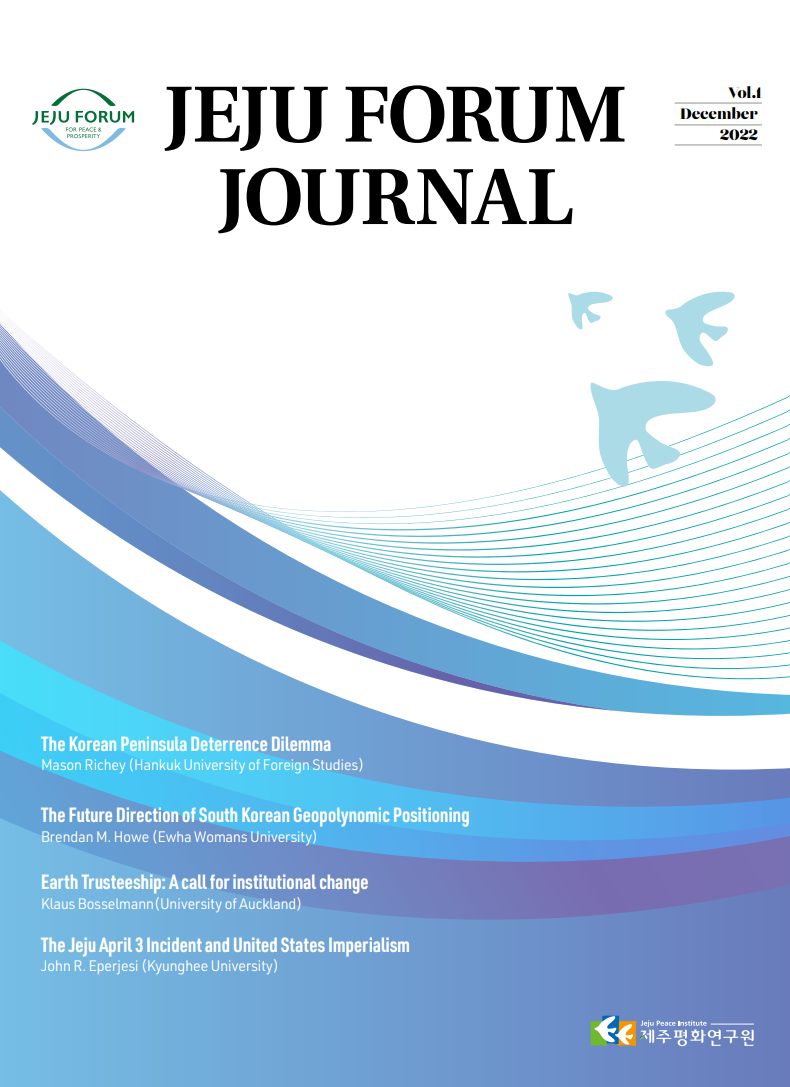The Jeju Forum for Peace and Prosperity, which the Jeju Peace Institute (JPI) annually organizes and hosts, is an important venue for scholars, political leaders, diplomats, and activists from around the world to discuss current issues regarding peace, prosperity, and multilateralism.
The Jeju Forum Journal intends to bridge one forum to the next. While reviewing the ideas brought forward during that year’s Jeju Forum, the journal navigates the path toward next year’s Forum. At the same time, it aims to provide an independent platform for our readers to understand better the environment and circumstances surrounding East Asia and the world. Specifically, the Jeju Forum Journal publishes manuscripts analyzing events that shaped the world we live in today; events that are expected to have severe repercussions on relations between states; foreign policies of certain states that can affect other states’ actions; and other issues that are widely discussed among the public, scholars, and global leaders today.
The two articles in this issue are contributed by the participants of the Jeju Forum. The first article, “The Korean Peninsula Deterrence Dilemma,” is written by Professor Mason Richey (Hankuk University of Foreign Studies). The second article, “The Future Direction of South Korean Geopolynomic Positioning,” is contributed by Professor Brendan Howe (Ehwa Womans University). The two articles examine the security situation surrounding the Korean peninsula and explore options South Korea could choose to deal with the challenges it faces and enhance its security
The two essays in this issue are also contributed by the participants of the 2022 Jeju Forum. The first essay contributed by Professor Klaus Bosselmann (University of Auckland), “Earth Trusteeship: A call for institutional change,” discusses why we need “Earth Trusteeship” governance to better address the global ecological crisis. The second essay, “The Jeju April 3 Incident and United States Imperialism,” written by Professor John R. Eperjesi (Kyunghee University), explains the role the US played in the Jeju April 3 incident and why the US should consider apologizing for its actions.
These contributions cannot represent all the topics and issues discussed among the speakers at the Jeju Forum nor all the academic activities of the JPI. Still, through these four contributions, JPI hopes the readers will be able to get a glimpse of some of the essential topics and issues discussed at the Jeju Forum and throughout the year by the JPI. The Jeju Forum for Peace and Prosperity has been a premier regional dialogue platform, shaping the discourse to promote peace and prosperity in the region. We hope that the Jeju Forum Journal will help expand the ideas that have been brought up at the annual forum and stimulate discussions for future forums.

